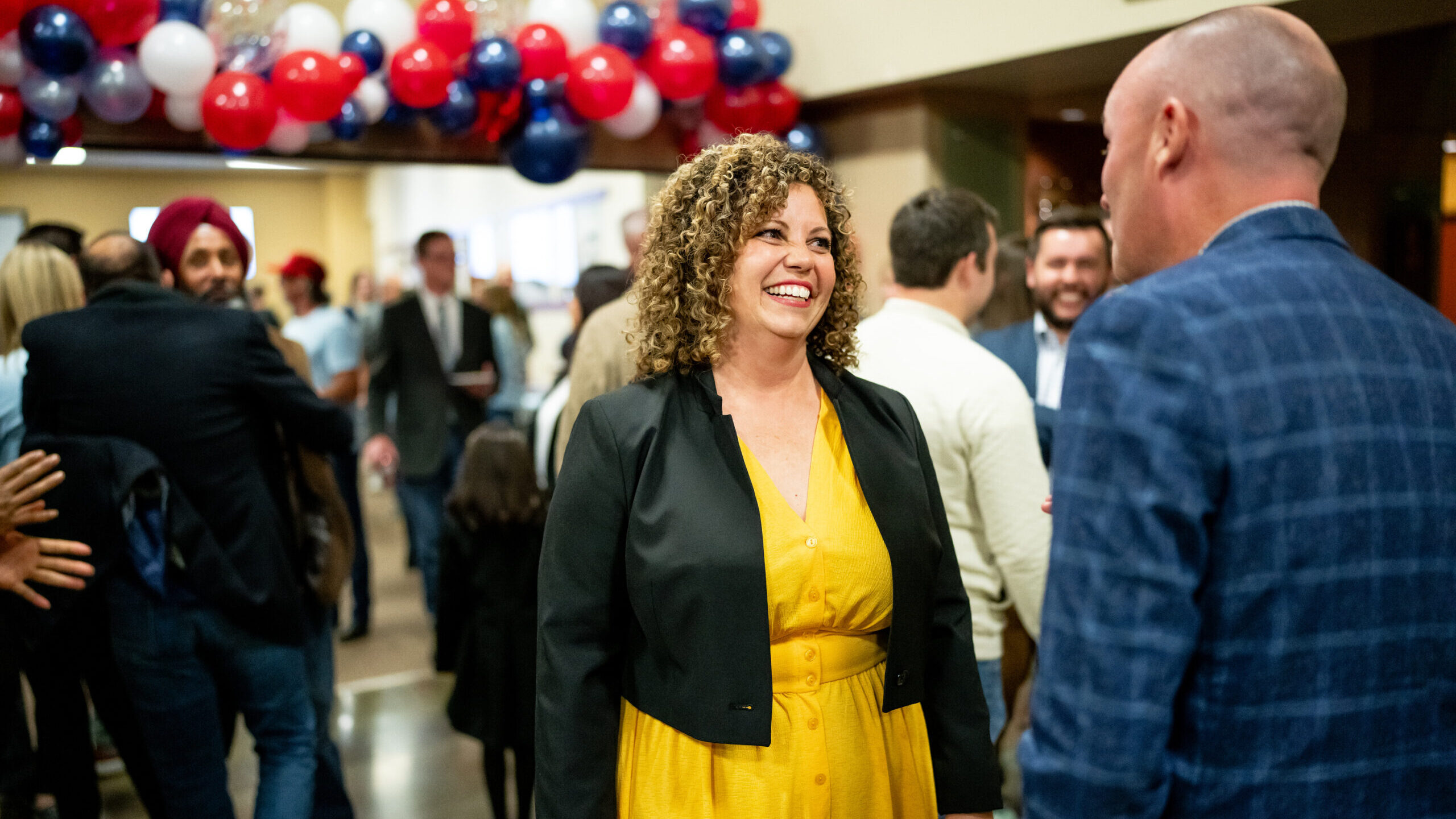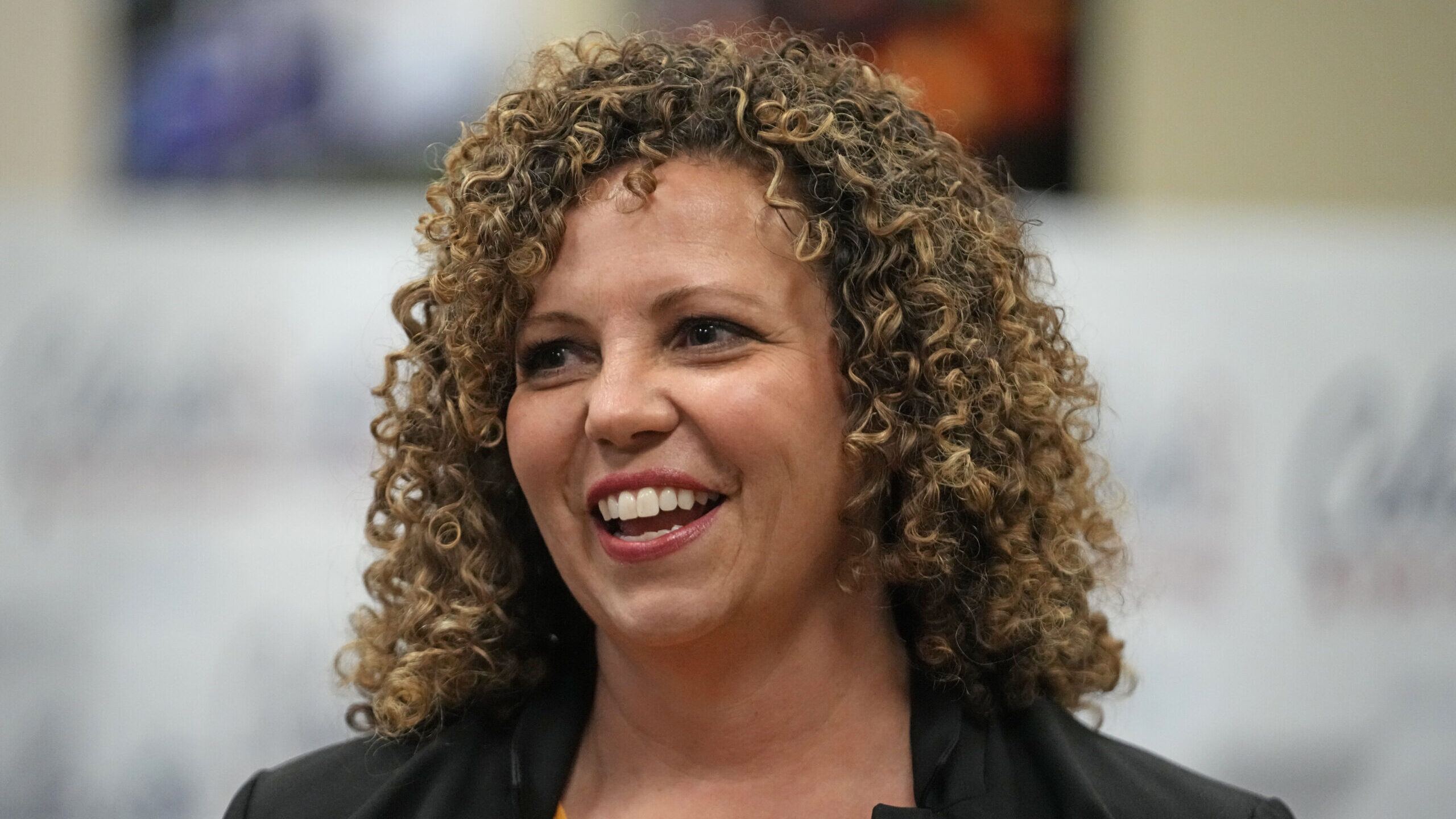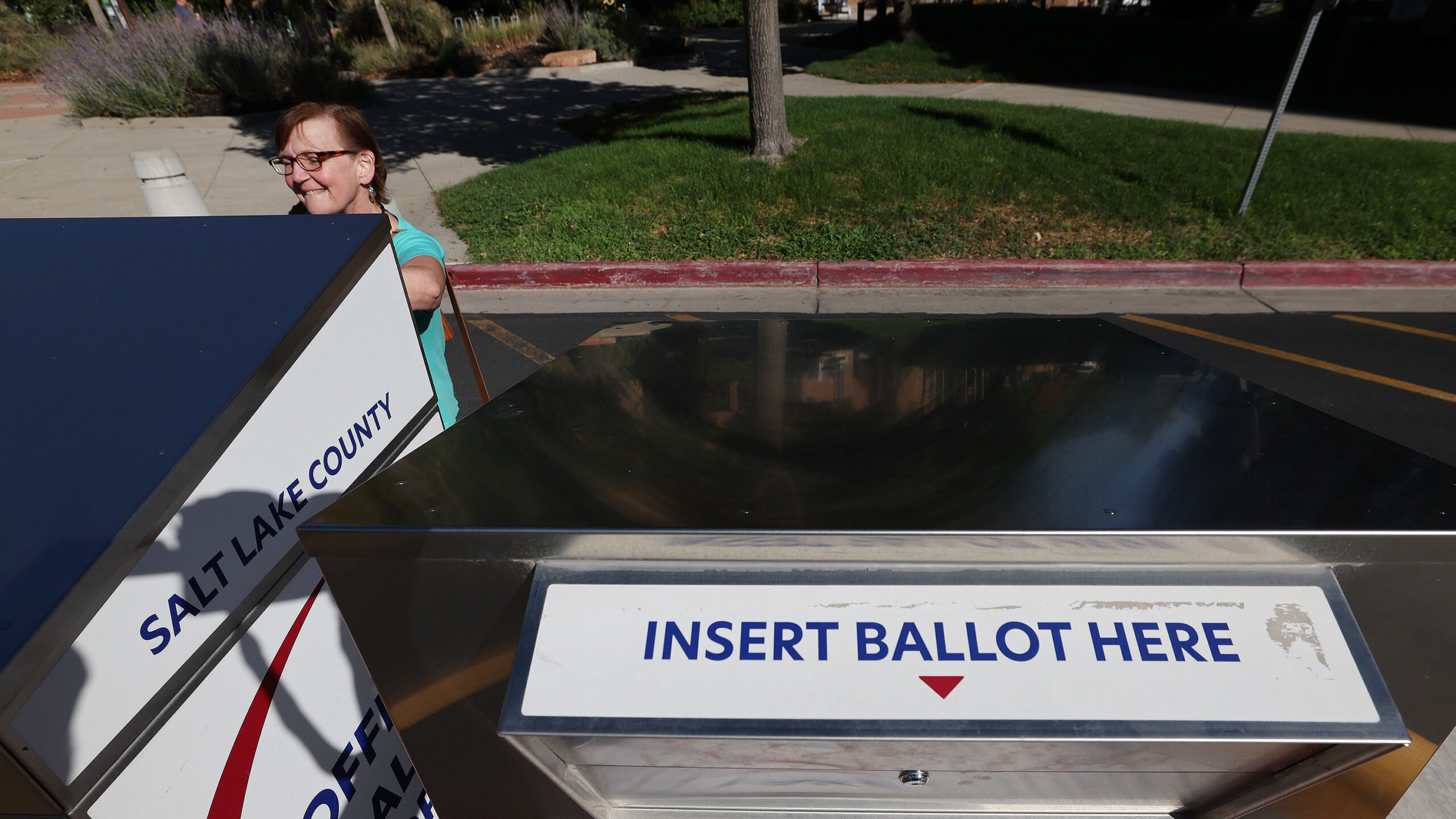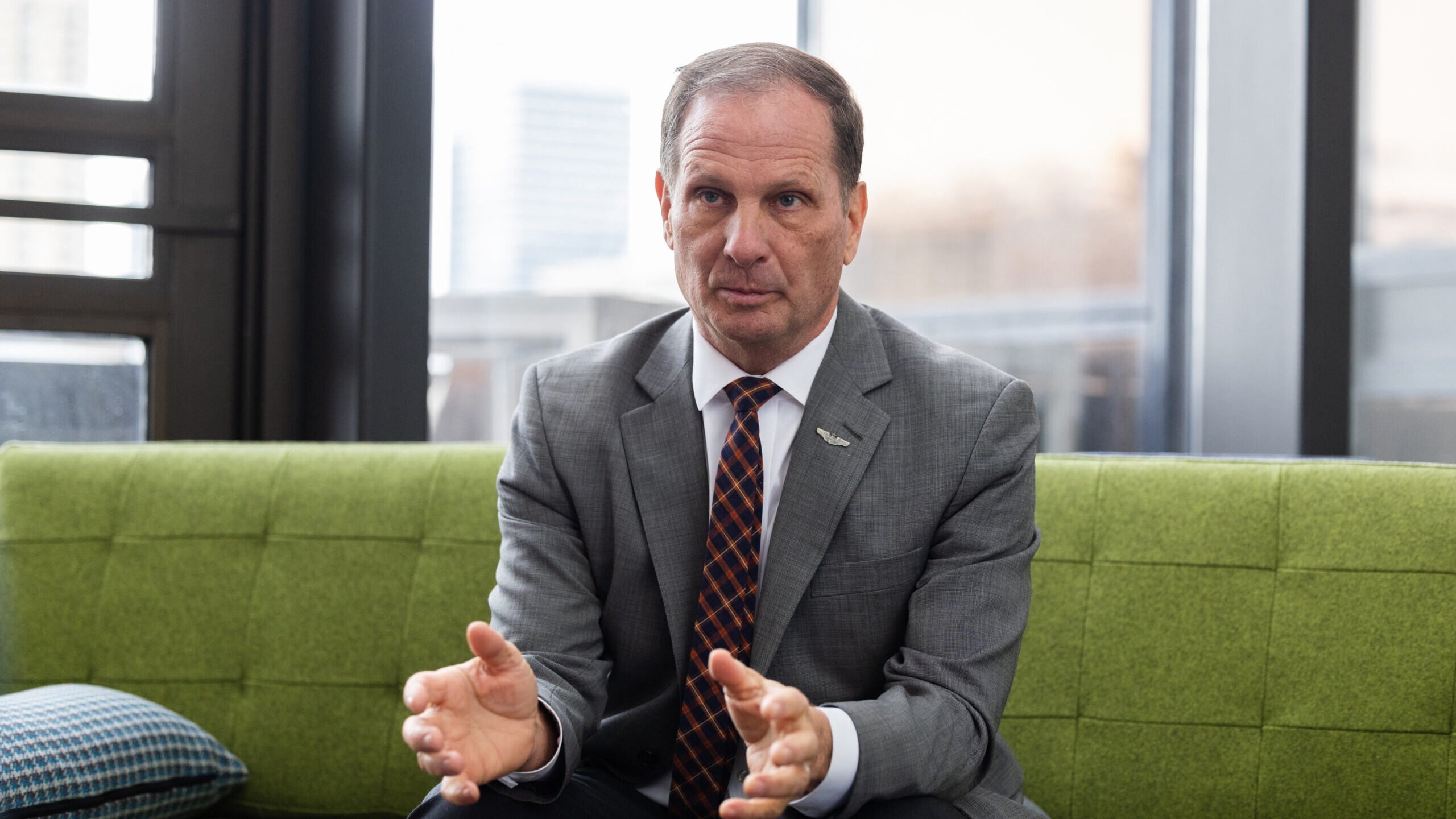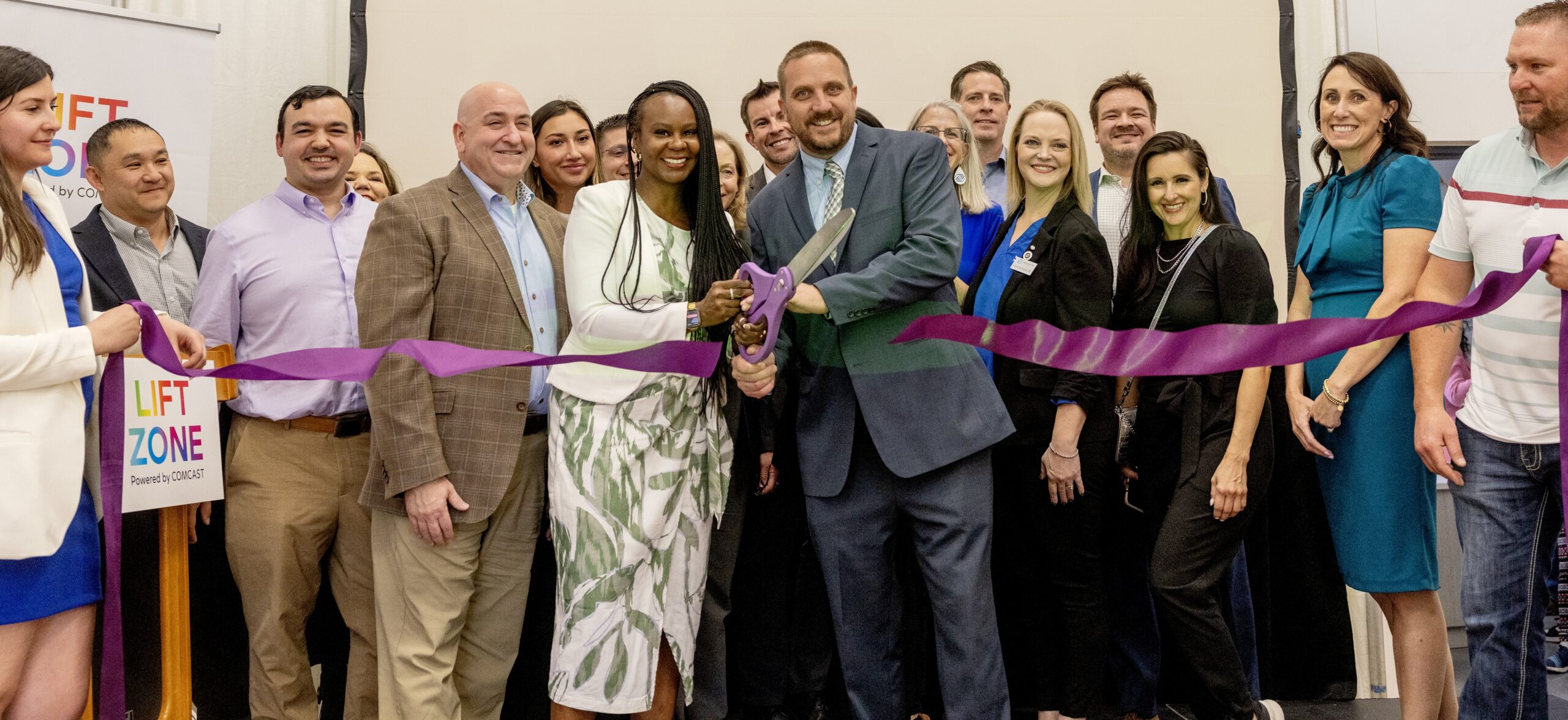2nd Congressional District candidate Kathleen Riebe in 8 questions
Aug 25, 2023, 5:00 AM | Updated: Aug 27, 2023, 8:53 pm

SALT LAKE COUNTY, Utah — State Sen. Kathleen Riebe, D-Cottonwood Heights, says she won the Utah Democratic Party nomination in the race to replace Rep. Chris Stewart, R-Utah, through hard work. Riebe all but ran away with the nomination earlier this year, receiving 86% of the vote.
KSL NewsRadio caught up with Riebe to ask eight burning questions asked of all the candidates on the ballot. A transcript of their full interview follows.
Kathleen Riebe’s stance on military
Kira Hoffelmeyer: Rep. Chris Stewart is leaving us as the only military veteran in Utah’s congressional delegation as of right now. What do you think are the interests of Utah’s military bases that you need to protect since no one running, to my knowledge, is a military veteran or currently in the military?
Kathleen Riebe: Our military has one of the biggest budgets of our government. And I’m proud of that. I think that what’s happening in our country and our world right now, we need to have a robust military force.
But what is more concerning for me is the way that we treat our veterans when they come back from their service, and, the services we provide for them. When they return, either, you know, injured or not injured, we need to make sure that we can provide them with education, job opportunities and also health care.
Like I said, I’m proud of the work that we do as Americans to support our military while they’re in service. But once they get out, I think we can do better.
My cousin was in the Vietnam War, and he just passed away from illnesses associated with Agent Orange. And he had a terrible last couple of years of his life.
My uncles, my dad … all were military people. And so when I look to see what we’re doing for our servicemen when they leave, I think that we can do better.
We can provide educational opportunities, we can provide opportunities for their spouses, create better paths, and easy off-ramps and on-ramps for their children when they’re coming in at a school. I know they move a lot, you know when you talk about army brats. So I think that’s something that we can do better in.
Kathleen Riebe’s stance on public lands
Kira Hoffelmeyer: In Utah, we have a lot of public lands, like 60% to 70%-ish of which are controlled by the federal government. And obviously, most of Utah’s congressional districts, therefore, have some public lands in them. The second congressional district is no exception. How would you work with the feds when it comes to public lands to ensure Utah’s best interests?
Kathleen Riebe: This is a great question, and I think about it frequently.
Our public lands are a treasure, and they’re a national treasure. And, you know, there is some tension there, because we want to use the resources to the best of our ability, but we also want to have more control over that and receive some revenue from them.
A couple of years ago, we had a huge fire in Spanish Fork, and it was expensive. When we look at something like that, it’s nice to have the resources from the federal government if we ever had a disaster in one of those parks or on that land.
So having the federal government partnership with Utah is good — sometimes.
I was down in Ephraim this week, last weekend, and they were talking about the lumber there and the forests, and there’s all this beetle kill. And so trying to create a path where people can have long-term stable jobs — in just this one example, the lumber industry — this is something that we can do better on, you know, creating a situation where we can use the resources, but not exploit them. And then make sure that they’re available for people in the future.
Another thing that comes up all the time is payment in lieu of taxes. And this is something that our areas rely on to make ends meet. And the federal government is not doing as well as they could with PILT.
I think as a state, though, we can help our rural (areas) when they need that assistance. Our school districts can’t tax at the same rate as other school districts. So we have created a system where we can provide them the framework to match their bonds when they, you know, try to tax for schools.
So there are many different tools we can use to make sure that we are getting the resources out of our parks and also maintaining them for future generations.
Kathleen Riebe and the shutdown showdown
Kira Hoffelmeyer: You spoke about taxation. And it reminds me of the question I have, which is you’re gonna enter Congress, if elected, basically right in the middle of what we at KSL like to call a “shutdown showdown.” And so what do you have to say about the state of the economy, of inflation, of the government spending… all that jazz?
Kathleen Riebe: Well, just recently, we discovered that Fitch has reduced our bond rating, which is devastating.
This is something that we really need to start thinking about, you know, not just having a large budget, but also how we’re perceived and how we can work together. So I think that is the most problematic thing right now dealing with the budget, and how we just changed our bond rating.
I plan on being a blue-dog Democrat. I run a household that is fiscally sound, I teach in a school where we have limited resources. So I know what that’s like.
And I think that we have to be more respectful and responsible of the people of the United States and make sure that we have a thriving economy.
Inflation is doing fine. People are feeling the stresses of it, but we’re trying to move those levers so that they are coming back into a more reasonable space.
Kathleen Riebe on where Congress and SCOTUS meet
Kira Hoffelmeyer: The Supreme Court has handed down decisions on a lot of divisive topics in the last eight or so months. We’re talking abortion, we’re talking affirmative action, all of this sort of stuff. What is the role of a member of Congress in all of this chaos and decision-making surrounding the Supreme Court as of late?
Kathleen Riebe: Thank you. That’s a loaded question. There is a lot of turmoil. And you know what, unfortunately, the turmoil that we are dealing with is not what’s most important to the people every day.
I have a kid that’s going to college next semester — that’s on my mind. I have a daughter who’s in high school, who’s playing sports — that’s on my mind. Having them sit down at dinner, paying for their car insurance, paying for their schooling, you know, these are the things that we really should be concerned about.
When I look at what’s going on in Congress, I see a lot of chaos. And, you know, that’s not helping the American people at all.
So I would like to step away from some of these more wedge issues. And I’d like to start to get down to what’s important.
Here in the state of Utah, we passed 570 bills, and about 550 of them are unanimously voted on … because that’s what we do here in the state of Utah. We look for common-sense solutions for the needs of the people in this community.
And I think I can bring that to Congress. And I think that that’s what everyone should be looking for, someone who’s not going to grandstand and have, you know, screaming from the rafters.
We need common sense people who are going to get the work done and work across the aisle to make sure that kids have insurance, kids can get an education, parents can find jobs and housing, and get the health care they need. And, you know, all those other things are not really what my day-to-day is worrying about, you know?
Kathleen Riebe on running for re-election
Kira Hoffelmeyer: If you’re elected, you’ll get into office, and then basically, come January, you’re going to have to file to rerun, would you be interested in representing the second district again? How do you feel about that?
Kathleen Riebe: Thank you for that question. It’s something I think about all the time, running for office.
We do really think about it all the time. It never leaves your mind, like what the next step is what’s going to happen in the next four years.
So when I first got elected, I ran every two years because of the seats that I went into, and regardless of whether I win the seat or not, I will still be running again in January.
So I’m okay with that.
This morning, I was on another meeting like, ‘Oh, it’s the worst thing running for office.’
It’s not. I really enjoy meeting the people of my communities. I enjoy getting out there. I enjoy talking to people. I like going to school board meetings and city council meetings and parades.
I mean, it’s important to know what’s going on in people’s lives.
As a school teacher, who meets a kid in kindergarten and follows them for six years, you really get to know the families and you understand better what’s really problematic in your community once you’re out there, so I’m okay with it.
I’m excited. It’s exhausting, but I like it, I like a challenge. I like working. I like meeting people. And then, you know, every once in a while, I have to sit down and binge a show because I’m just exhausted.
Kathleen Riebe on some silly questions
Kira Hoffelmeyer: If you have the choice, is it Utah or BYU?
Kathleen Riebe: So this is an interesting story, quite honestly.
With the new flag, I was on the committee that decided to get that out of committee. And when [Sen.] Dan McKay presented this, he, you know, came to me on the side and was like, ‘Please help me get this flag out of committee.’
And I said, ‘As long as I don’t have to be the deciding vote on the flag, I will help you.’
And the most compelling part of that whole presentation was when he said, that when you go to Disneyland, or outside of Utah, the only like, way that you recognize Utahns is a BYU hat or the University of Utah hat.
And he said, ‘Now we can all wear the new flag hat!’
This will make us all come together and not have to decide which hat to put on to represent Utah, we’ll have a common hat.
So I’m gonna say neither. I’m gonna go with the new flag hat because it’s a unifying symbol. And so that’s what gave him the vote to get it out of committee.
And I have to go buy, I have to get like all those hats and shirts because I think that’s what we should all be wearing. There shouldn’t — we shouldn’t have two camps anymore. We should all be together.
Hoffelmeyer: So are they are they humans in costume? Are they actually sun bears? I have to know.
Riebe: I literally spent way too much watching that video.
I was a little too engaged and I was a little too scrolling in … bringing it in stopping it, you know. They said like, you know, the wrinkle on the butt made it a costume, and then the long neck made it look like Big Bird.
And I’m like, I don’t know, I went back and forth.
But, you know, they have come out and they said, we are defending that this is not a person, it’s an animal. So I like to see the best in everyone. So I’m going to have to believe that it was an animal and not a person in a weird bear outfit.
I want to find the good in everyone so I’m going to go with the truth, that it’s really a bear.
Hoffelmeyer: If the FBI were to do some sort of security clearance check, and they found something that was silly or embarrassing, what might it be?
Riebe: I’ve lived in a lot of different states, and I’ve had jobs in a lot of states. And I’ve had some really crazy jobs.
I’ve been a dump truck driver, a wildland forest fire person. And so it’s going to be an interesting journey that they go on, quite honestly.
But there is a video out there of me in a parade. It’s the oldest parade in the nation, and it’s in Rhode Island. And I am dressed up as a lobster because I used to work as a clambake person, and we’d put up tents.
And so it was called — well, you know, I’m not going to give you too many links because I want them to go find it.
So yeah, there’s a video of me out there dressed up as a lobster in a parade. But it was really fun. It was really cool. It was the highlight of the parade for most people. And they had been doing it for years. And so I was really honored to be a part of a great parade.
This is part of a collection of questions asked to all candidates running in the 2nd Congressional District special election before the Sept. 5, 2023, primary election. See below for the interviews of the other candidates.
- 8 questions with Joseph Buchman
- 8 questions with Cassie Easley
- 8 questions with Brad Green
- 8 questions with Bruce Hough
- 8 questions with Celeste Maloy
- 8 questions with January Walker



